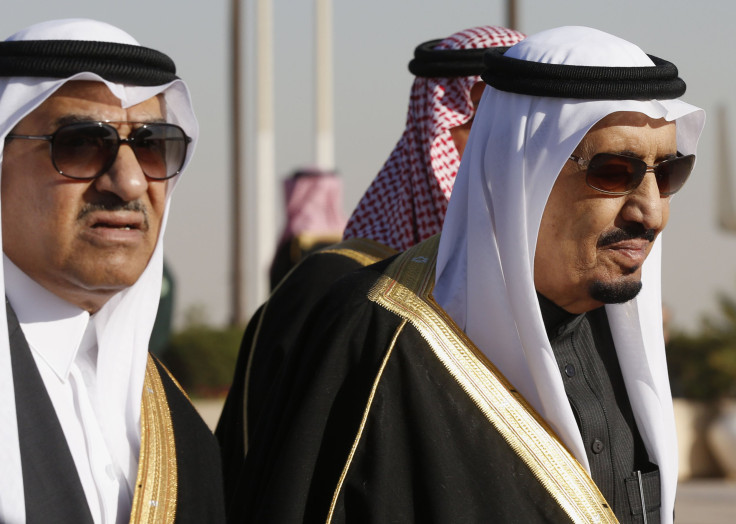After Iran Nuclear Deal, Saudi Demands Could Pivot Toward Palestine

Could the recent nuclear deal with Iran be a roundabout route to gains in stalled Israeli-Palestinian peace talks? Saudi Arabia had previously warned against a nuclear deal with its sworn enemy Iran. However, since one was reached Tuesday between Iran and the six world powers known as the P5+1, Saudi Arabia could leverage the deal to make new demands of the U.S., its longtime ally, which led the negotiations that preceded Tuesday’s deal, the Israeli newspaper Haaretz reported.
After the deal was made, Saudi Arabia warned, once again, that Iran had to use the sanctions relief granted the country as part of the accord solely for peaceful purposes and improving the lives of civilians, "rather than using them to cause turmoil in the region, a matter that will meet a decisive reaction from the nations of the region," it said in a statement.
The fact that the deal made some key U.S. allies in the Middle East nervous, if not outright angry, was not unexpected. The day the deal was reached, U.S. President Barack Obama called Saudi Arabia’s King Salman bin Abdulaziz and shared details of the treaty, saying that it would block all pathways Iran could take to build a nuclear weapon.
<iframe width="560" height="315" src="https://www.youtube.com/embed/ywgpj6VIWJo" frameborder="0" allowfullscreen></iframe>
“The President underscored that the United States is as committed as ever to working with our Gulf partners to counter Iran’s destabilizing activities in the region and promote stability as well as resolutions to the region's crises,” a statement from the White House said.
More regional diplomacy could thus be one way for the White House to assuage the concerns of its Middle Eastern allies, but whether such efforts would bring about lasting results remains to be seen.
It would not be impossible for a deal with Iran to help bring about peace between Israel and Palestine, Aaron David Miller, a former U.S. State Department advisor, wrote in April, months before a final deal was brokered, for the Daily Beast. But the odds were slim, he argued.
“In the best of all possible worlds, Obama’s apparent success with Iran would open new paths to Arab-Israeli peace,” Miller wrote. “But the Mideast is not the best of all possible worlds.”
Some Saudis certainly remained skeptical of the benefits that the deal could bring for the region.
“Iran under sanctions was a pain in the neck for the Saudis, and it will be more of a pain in the neck without sanctions,” Jamal Khashoggi, a Saudi journalist, told the New York Times. “There is no sign that the Iranians are going to change and bring peace.” Meanwhile, Abdulkhaleq Abdullah, a professor of political science at United Arab Emirates University, told CBS News that, "Deal or no deal, tension in the region is not going to go away."
Others were more optimistic. “The agreement will be a prologue to a Middle East free of nuclear weapons, especially those of Israel,” predicted Amr Moussa, a former secretary-general of the Arab League, Haaretz reported.
© Copyright IBTimes 2024. All rights reserved.






















